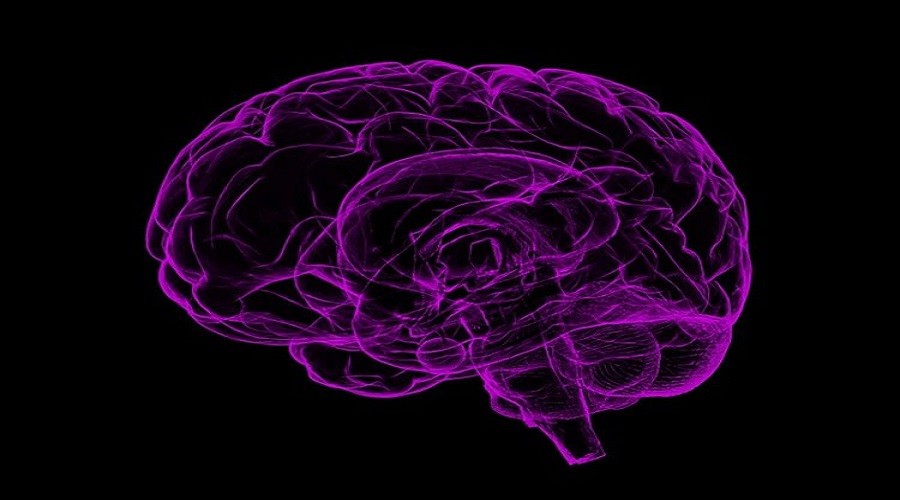Psychopaths have long been a subject of fascination for researchers studying human behavior and criminal justice. Studies show that psychopaths are much more likely to commit violent crimes than non-psychopaths, and are notoriously resistant to rehabilitation techniques.
Psychopathic individuals are cunning, manipulative, and exceptionally good at reading people and situations. They mimic the emotions and feelings that are expected of them. These skills have seen many gain early release from incarceration only for them to go right out and commit the same crimes again and again.
Rehabilitation strategies often rely on the ability of individuals to acknowledge their actions as wrong and feel remorse for them. However, psychopaths lack these capacities, making rehabilitation challenging or even impossible. This highlights the need for alternative approaches to managing this population within the criminal justice system.
Identifying The Psychopath
Within criminal behavior, psychopaths feature highly, especially in very serious crimes such as murder and serial murder. In fact, almost all serial killers are psychopaths.
When these personalities have been examined previously their inability to feel the same range of emotions as the rest of us has been put forward as the main reason why they are able to commit some horrendous and violent acts against others, and then go about their lives with no concern or outward indication that would alert anyone around them of what they had just done.
We commonly separate ourselves from psychopaths in an ‘us’ and ‘them’ mentality under the assurance that they are rare specimens and not people we are likely to encounter in everyday life. This assurance and assumption are entirely wrong.
Psychopaths make up around 1% of our general population, although few become the serial killer figure we associate with their label. In fact, research suggests you will find just as many psychopaths in high-flying corporate settings as you will inside a prison population, up to 21% to be precise.
The lack of emotional attachment, little concern or fear of other people’s feelings, and a strong belief in themselves have pushed psychopathic personalities to do very well in the workplace. They often climb the ladder of corporate success by being able to think fast, make harsh decisions and focus entirely on business cutting out the personal. Similar to the true narcissist, these are qualities attractive to employers who are looking for a focused, driven, and ruthless leader. How long such individuals can maintain their success, however, without stepping too far or straying into illegal activities is another matter but take a look within politics and corporate business and you’ll find psychopaths occupying some important positions.
“Being a psychopath might predispose someone to short-term success. They tend to be charming and flamboyant, which makes it easier to be successful in the short-run, although that may be purchased at expense of long-term failure.” – Professor Scott Lilienfeld, Atlanta Emory University
Psychopathy and Criminal Violent Behaviour
Dr. Scott Bonn on Psychology Today highlights the powerful relationship between psychopathy and criminal behavior and violence, stating that in 2012 the FBI reported of 15-20% of the prisoners in the US were psychopaths. They are organized criminals, they take their time to plan and ponder the best way to achieve their aim, and when it comes to murder that aim will most likely involve power and control. “Violent offenders who are psychopaths are able to assault, rape or murder without concern for legal, moral or social consequences”, he points out. So what is it that makes a psychopath able to be so unaffected and unconcerned about the consequences of their brutal and selfish acts?
Dr. Adrian Raine has conducted studies with prison populations using PET imaging to take a look at the functioning brains of convicted killers considered to be psychopaths in direct comparison to the brains of non-criminals and non-psychopaths. He found clear patterns of difference within the brains of psychopathic killers, particularly in the pre-frontal cortex, the area responsible for final decision-making and regulation of our behavior.

The Emotional Responses of Psychopaths
Psychopaths have already been shown to display different emotional responses or rather, muted or non-existent emotional responses compared to non-psychopaths when shown distressing images, and their brain activity is monitored using fMRI. This can go some way to explain how they are often able to carry out brutal and violent acts on others and not appear affected by their actions or the pain they are causing.
In a research study by Dirk Geurts and colleagues from Radboud University in the Netherlands, reward expectation in psychopathic criminals with highly impulsive and anti-social traits was explored in detail. They examined individuals with psychopathy using fMRI brain imaging and highlighted that the reward networks of a psychopath’s brain appear to be more active during decision-making processes than those of non-psychopath brains.
FMRI is a modern brain imaging technique that when used for research allows scientists to view the changes in blood oxygenation in the brain. Functional MRI differs from standard MRI as scientists ask subjects to perform a task while their brain is being scanned. Asking an individual to perform a task and ‘function’ allows their brain response when carrying out the task to be examined by how blood flows around the brain.
In order for brain regions to communicate with each other, neurons use oxygen when they are active and it is in this way that the different areas of the brain using oxygen at different times can be mapped. This highlights which areas are involved in responding to the task set and which areas are communicating with each other,

Published in 2016 in the Journal of Social Cognitive and Affective Neuroscience, lead author Dirk Geurts said individuals with psychopathic traits may have “an excessively sensitive reward centre” and it may be a “strong focus on reward and a lack of self-control” which promotes a stronger tendency for these individuals to commit a crime.
Most research to date has focused on the psychopathic brain’s ability to feel little emotion. A person with full-blown psychopathy does not relate to others, cannot empathize with them, and does not have any remorse for causing them harm as a result. And while this remains true and a significant factor within their behavior, suggestions are now being made through new research that the decision-making process may be a prime cause for their behavior and why consequences to their actions are given so little weight, even when those consequences could mean a life behind bars or being put to death for their crimes.
A greater understanding of the functioning psychopathic brain and where it may be different from the non-psychopathic brain could be the key to intervention before such violent behavior takes hold.
Psychopath’s Brains May Be Wired Differently
A new research study recently published in the Journal Neuron has challenged the focus on psychopaths’ behaviors being due to their entire lack of empathy and emotion and switched it towards the actual cognitive processes of those with psychopathy in how they make decisions on what actions they will or will not take.
Associate Professor of Psychology Josh Buckholtz led the study examining the brains of 50 prison inmates. The idea behind the research was to explore why those with psychopathic personalities often made decisions that led them to violence and anti-social behavior, compared with those who do not display this type of personality. The results of the study highlight, according to Buckholtz “….not the feelings they have or don’t have, it’s the choices they make.” The paper was published in July 2017 by Professor Buckholtz from Harvard University with the underlying message that a psychopath’s brain may simply be wired differently.
In this study, Buckholtz explains “We are able to look at brain-based measures of reward and value and the communication between different brain regions that are involved in decision making.”

In order to scan the brains of psychopathic individuals, Buckholtz and his colleagues took the scanning technology inside prisons and to his subjects. The equipment they used functioned as a mobile scanner that they could take inside prisons, set up and calibrate and then use to obtain brain scans from as many prisoners as time and circumstances would allow while they were there. This offered a unique opportunity to take advanced brain imaging technology to a group of individuals who outside of the prison walls would not be grouped together and not be available to study in this way.
The study team went into two medium-security prisons in Wisconsin with their equipment. Alongside Professor Buckholtz were researchers from the University of Wisconsin and The University of New Mexico.
Inmates’ brains were scanned using the fMRI scanner as they carried out a ‘delayed gratification test’. While the mobile scanner was running, inmates were presented with two options involving a fictional monetary reward. One option would provide them with a smaller sum of money but they would receive this money immediately, and the second option would give them a larger amount of money but they would have to wait before they would receive it. The test was designed to examine how impulsive the inmates were but also through the scanner, imaging their brains while they were making these decisions, to see which brain regions were involved in this cognitive decision process.
The results showed that for inmates who were classed as psychopaths (i.e. they scored highly on Hare’s Psychopath Scale) they displayed more activity in the ventral striatum area of the brain, compared to non-psychopaths. Areas of the brain involved in decision-making include regions of the prefrontal cortex which sits at the front of the brain just behind the forehead, and Buckholtz explained, “We found that connections between the striatum and the ventral medial prefrontal cortex were much weaker in people with psychopathy.”
When faced with a decision, people weigh up what would be the best option for them which includes what would happen if they went with option A instead of option B. This is an automatic process inside the brain where rewards are weighed against consequences and this process guides our ultimate decision-making.

The ventral medial prefrontal cortex, says Buckholtz, is significant because it is the area of the brain that visualizes consequences, so when we are making a decision on whether to do something, it is this area that will consider what the future consequences of that action will be. Buckholtz highlights that the outcome of this process directly impacts how the striatum area then responds to rewards. The strength of this response is affected depending on the consideration of the consequences. So in psychopaths, if this chain of processes within the brain is not as strong, the value of immediate rewards may be “dramatically over-represented”.
If for example, the decision being made is whether or not to commit a crime, this cognitive assessment process would include consideration of the potential consequences of carrying out the crime, i.e. getting caught, going to prison, or pain they may inflict on the victim of the crime. If these consequences outweigh the immediate benefit of committing the crime such as obtaining money or achieving revenge, the decision most likely would be not to do it. If however, it is felt the benefits outweigh the consequences, a person will most likely carry out the crime.
In this research, scientists are indicating that the assessment process for those who rate highly on the psychopath scale is different from how it works for the rest of us. The communication networks between the area of the brain which considers future consequences and the area of the brain that makes the final decision and acts on it, behave differently. The immediate benefit or value of the decision can seem much more attractive despite the consequences. This means for psychopaths, the scale is tipped in favor of the benefit of the decision rather than the consequences.
This research from Harvard University adds to the increasing science we are witnessing regarding psychopathic brains and how they may operate, especially when considering why such individuals can display more violence than those who are not considered to be psychopathic. Each viable study carried out in this field can provide more potential answers to some of the burning questions we all have about psychopaths. From this current study, it seems that psychopaths’ behaviors may be dominated by not only their lack of emotions but a disposition to over-value the rewards they perceive from decisions that may lead them to violence.
Cover image credit – knowingneurons.com
- Agerholm, H. (2016). 1 in 5 CEOs are psychopaths according to a new study – here’s why. Business Insider. https://www.businessinsider.com/1-in-5-ceos-are-psychopaths-2016-9
- Bonn, S. (2016). Understanding Psychopathic Criminals, Wicked Deeds. Psychology Today. https://www.psychologytoday.com/blog/wicked-deeds/201607/understanding-psychopathic-criminals
- Geurts, D. E. M., von Borries, K., Volman, I., Bulten, B. H., Cools, R., & Verkes, R.-J. (2016). Neural connectivity during reward expectation dissociates psychopathic criminals from non-criminal individuals with high impulsive/antisocial psychopathic traits. Social Cognitive and Affective Neuroscience, 11(8), 1326–1334. https://academic.oup.com/scan/article/11/8/1326/2223631
- Harvard University. (2017, July 5). Probing psychopathic brains: Study shows psychopathic brains are wired in a way that can lead to dangerous and violent actions. ScienceDaily. https://www.sciencedaily.com/releases/2017/07/170705131219.htm
- Hosking, Jay G. et al. (2017). Disrupted Prefrontal Regulation of Striatal Subjective Value Signals in Psychopathy. Neuron, 95(1), 221-231.e4. https://www.cell.com/neuron/fulltext/S0896-6273(17)30554-8
- Raine, A. (1999). Murderous Minds: Can We See the Mark of Cain? The Dana Foundation. https://www.dana.org/article/murderous-minds-can-we-see-the-mark-of-cain/
- Reuell, P. (2017). When brains overvalue immediate rewards. Harvard Gazette. https://news.harvard.edu/gazette/story/2017/07/harvard-study-suggests-that-psychopaths-have-an-impaired-brain-reward-system/
- The Brain Defense – Murder in Manhattan and the dawn of neuroscience in America’s courtrooms has been called “the best kind of nonfiction” by Michael Connelly, this riveting new book combines true crime, brain science, and courtroom drama.
- The Psychopath Inside – Neuroscientist Jim Fallon’s personal journey into the dark side of the brain is compelling and essential reading for understanding the underpinnings of psychopathy.



